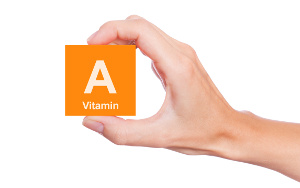Vitamin A’s key role in wound healing and stem cell biology
 In the case of wounds or skin lesions, an active form of vitamin A regulates how stem cells initiate healing processes and produce new skin. This was demonstrated in a study from Rockefeller University that is published in the journal Science. In the future, researchers plan to look closer at how active vitamin A can be used to regulate stem cells as a way of preventing and treating skin cancer.
In the case of wounds or skin lesions, an active form of vitamin A regulates how stem cells initiate healing processes and produce new skin. This was demonstrated in a study from Rockefeller University that is published in the journal Science. In the future, researchers plan to look closer at how active vitamin A can be used to regulate stem cells as a way of preventing and treating skin cancer.








 Magnesium is important for numerous physiological functions. In a new review article published in Nutrients, researchers have looked at the relation between the body’s magnesium levels and a variety of different ageing markers. Also, they hypothesize that optimal intake of magnesium throughout life is an easy and inexpensive way to obtain healthy ageing.
Magnesium is important for numerous physiological functions. In a new review article published in Nutrients, researchers have looked at the relation between the body’s magnesium levels and a variety of different ageing markers. Also, they hypothesize that optimal intake of magnesium throughout life is an easy and inexpensive way to obtain healthy ageing.

 "After about one week of taking the Q10 supplement I could feel a huge difference," says 23-year old Alan Piccini, who has been suffering from extreme fatigue and muscle aches ever since he was a child.
"After about one week of taking the Q10 supplement I could feel a huge difference," says 23-year old Alan Piccini, who has been suffering from extreme fatigue and muscle aches ever since he was a child. “Taking capsules with co-enzyme Q10 has freed me of the severe side effects of my cholesterol lowering medicine,” Mrs Franken explains.
“Taking capsules with co-enzyme Q10 has freed me of the severe side effects of my cholesterol lowering medicine,” Mrs Franken explains.